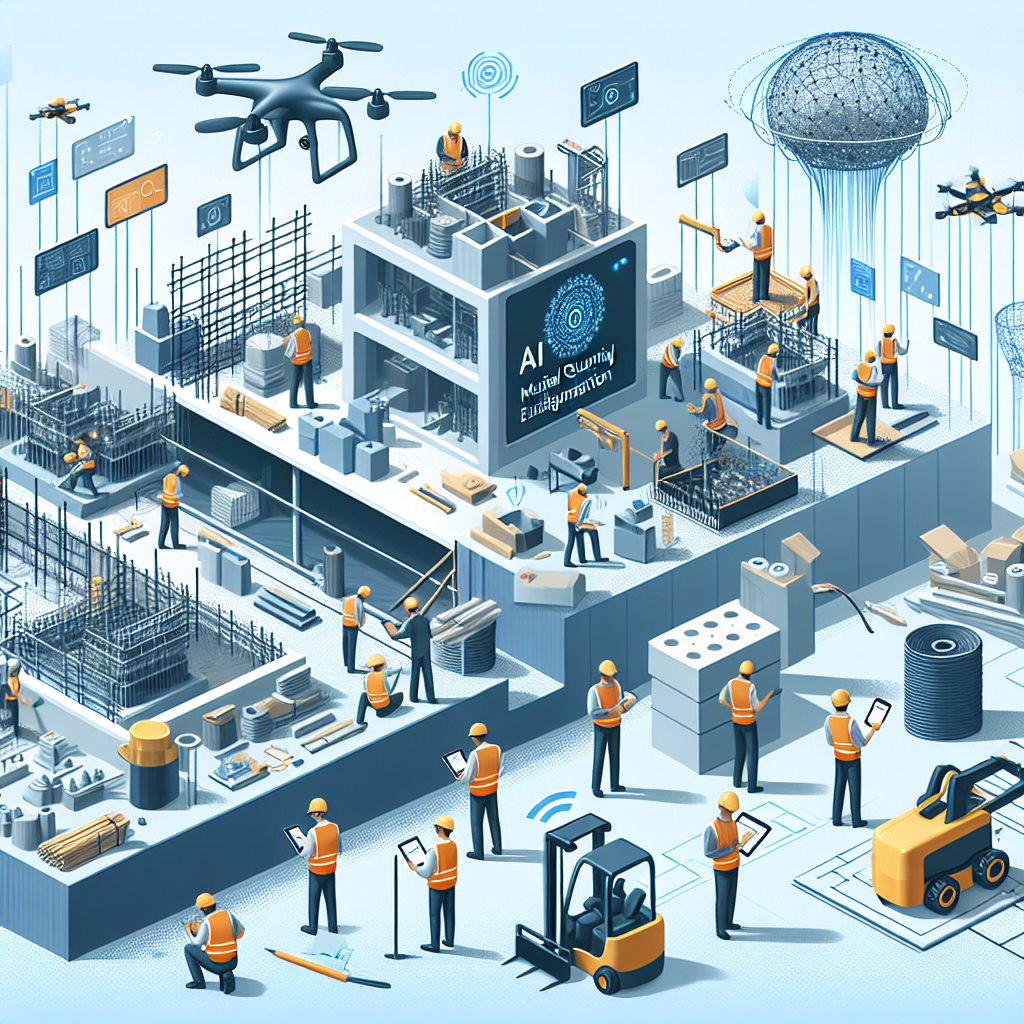Table of Contents
The Power of AI in Material Quantity Estimation
What is AI Material Quantity Estimation?
AI material quantity estimation uses machine learning algorithms to analyze historical project data, blueprints, and even 3D models to predict the precise amount of materials needed for a construction project. Unlike traditional methods that rely heavily on manual calculations and experience-based estimations, AI takes a data-driven approach, minimizing the risk of human error and significantly improving accuracy.
Benefits of AI-Powered Material Estimation
The advantages of integrating AI into your material planning process are numerous:
- Increased Accuracy: AI algorithms can analyze vast datasets to identify patterns and correlations that humans might miss, leading to more precise material estimations.
- Reduced Waste: Accurate estimations minimize the risk of over-ordering, leading to less material waste and a smaller environmental footprint.
- Cost Savings: By optimizing material usage, AI can help construction companies save significantly on material costs.
- Faster Turnaround Times: Automated estimation processes free up valuable time for project managers and estimators, allowing them to focus on other critical tasks.
- Improved Bidding Process: Accurate material estimations enable more competitive and realistic bids, increasing the chances of winning projects.
Top AI Tools for Material Quantity Estimation
Several powerful AI-powered software solutions are available to help construction companies streamline their material estimation process. Here are a few examples:
- Software A: This cloud-based platform uses machine learning to analyze 2D drawings and 3D models, generating detailed material takeoffs and cost estimations.
- Software B: This solution integrates with existing project management software, providing real-time insights into material usage and potential cost overruns.
- Software C: This AI-powered tool specializes in optimizing material deliveries, ensuring that materials arrive on-site exactly when needed, minimizing storage costs and waste.
Expert Insights
“At Toronto Digital, we’ve seen firsthand the transformative impact AI can have on the construction industry,” says Karman Verma, COO and Co-Founder of Toronto Digital. “By automating tedious and error-prone tasks like material quantity estimation, we’re empowering construction companies to be more efficient, profitable, and sustainable.”
Practical Application: Implementing AI for Material Estimation
Here’s a step-by-step guide to integrating AI into your construction workflow:
- Data Collection: Gather historical project data, including blueprints, material orders, and actual material usage.
- AI Platform Selection: Choose an AI-powered material estimation software that aligns with your specific needs and budget.
- Data Integration: Integrate your existing project data into the chosen AI platform.
- Model Training: Train the AI model on your historical data to ensure accurate estimations for future projects.
- Validation and Refinement: Continuously validate the AI’s estimations against actual material usage and refine the model as needed.
Case Study: Toronto Digital Helps Construction Company X Streamline Material Management
Toronto Digital recently partnered with a leading Canadian construction company to implement an AI-powered material estimation solution. By leveraging machine learning algorithms, the company was able to:
- Reduce material waste by 15%
- Decrease material costs by 10%
- Shorten project timelines by 5%
Potential Real-Life Challenges and Solutions Using AI for the Industry
Challenge: Resistance to adopting new technologies.
Solution: Start with a pilot project to demonstrate the value of AI and provide comprehensive training to employees.
Challenge: Data security concerns.
Solution: Choose AI platforms that prioritize data encryption and comply with industry-standard security protocols.
Conclusion
The integration of AI into the construction industry is no longer a futuristic concept but a present-day reality. By automating material quantity estimation, AI empowers construction companies to optimize resource allocation, minimize waste, and boost profitability. As AI technology continues to evolve, we can expect even more innovative applications that will further revolutionize the construction industry in the years to come.
Ready to explore how AI can transform your construction projects? Contact Toronto Digital today for a free consultation.
FAQs
- How much does AI-powered material estimation software cost?
The cost varies depending on the software provider and the specific features included. Some providers offer subscription-based models, while others charge a one-time licensing fee. -
Do I need specialized technical expertise to use AI for material estimation?
Most AI platforms are designed to be user-friendly, even for team members without extensive technical backgrounds. However, basic computer literacy and a willingness to learn new technologies are essential. -
What types of construction projects can benefit from AI-powered material estimation?
AI can be applied to a wide range of construction projects, from residential buildings to large-scale infrastructure developments.
For more insights, check out our blog or explore our portfolio to see how we’ve helped other businesses succeed. Visit our homepage for more information.
